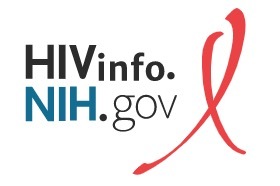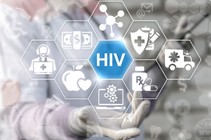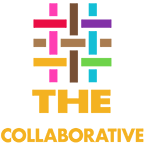
 The Panel on Antiretroviral Guidelines for Adults and Adolescents (the Panel) updated several sections of the Guidelines for the Use of Antiretroviral Agents in Adults and Adolescents with HIV.
The Panel on Antiretroviral Guidelines for Adults and Adolescents (the Panel) updated several sections of the Guidelines for the Use of Antiretroviral Agents in Adults and Adolescents with HIV.
Highlights from the sections are summarized below:
Selection of Antiretroviral Therapy for Individuals Who Acquire HIV After Having Received Long-Acting Cabotegravir for Pre-Exposure Prophylaxis
In this update, several sections of the guidelines have been revised with discussions on factors that clinicians should consider when selecting an antiretroviral (ARV) regimen for individuals who acquire HIV after having received long-acting cabotegravir (CAB-LA) for HIV pre-exposure prophylaxis (PrEP). Because of the long half-life of CAB-LA, the Panel recommends performing genotypic resistance testing, including testing for integrase resistance, before starting antiretroviral therapy (ART). If resistance testing results are not available before ART initiation, the Panel recommends initiating a boosted darunavir regimen while awaiting results confirming no resistance to the integrase strand transfer inhibitor (INSTI) drug class. The sections updated with this new information include the following:
Laboratory Testing for Initial Assessment and Monitoring of Patients with HIV Receiving Antiretroviral Therapy
Drug-Resistance Testing
What to Start
Early (Acute and Recent) HIV Infection
Dolutegravir and Neural Tube Defects
Previously, the Tsepamo study from Botswana reported a higher prevalence of neural tube defects (NTDs) in women who received dolutegravir (DTG) during conception than with other ARV drugs. An updated report from the same study showed that the prevalence of NTDs is not significantly different from those on non-DTG regimens. For persons of childbearing potential who are trying to conceive, DTG-based regimens are among the recommended options for most individuals initiating ART. The following sections have been updated with this new information:
What to Start
Women with HIV
Transgender People and HIV
Laboratory Testing
The Panel updated the following sections relating to laboratory tests to be done at the time of ART initiation and the frequency of monitoring during follow-up:
Laboratory Testing for Initial Assessment and Monitoring of Patients with HIV Receiving Antiretroviral Therapy
Plasma HIV-1 RNA (Viral Load) and CD4 Count Monitoring
Drug-Resistance Testing
This section has been updated with two key new recommendations:
The Panel now recommends drug-resistance testing for people with virologic failure and HIV-RNA levels >200 copies/mL (AI for >1,000 copies/mL, AIII for 501–1,000 copies/mL,CIII for confirmed HIV RNA 201–500 copies/mL). For people with confirmed HIV-RNA levels >200 copies/mL but <500 copies/mL, drug-resistance testing may be unsuccessful but should still be considered.
The Panel previously recommended that resistance testing should be done within 4 weeks of discontinuation of an ARV regimen. However, given the long half-lives of the long-acting injectable ARV drugs, resistance testing (including testing for resistance to INSTIs) should be performed in all persons who have experienced virologic failure on a regimen of long-acting CAB-LA and rilpivirine (RPV) or acquired HIV after receiving CAB-LA as PrEP, regardless of the amount of time since drug discontinuation (AIII).
Optimizing Antiretroviral Therapy in the Setting of Viral Suppression
This section has been revised with the following key updates:
The Panel recommends that for regimen optimization in the setting of existing nucleoside reverse transcriptase inhibitor (NRTI) resistance, two NRTIs—tenofovir alafenamide or tenofovir disoproxil fumarate plus emtricitabine (FTC) or lamivudine (3TC)—should be included in the regimen with a fully active drug that has a high resistance barrier, such as DTG, boosted darunavir (BIII), or bictegravir (CIII).
The Panel recommends that pregnant persons who present to care on CAB-LA and RPV should be switched to a Preferred or an Alternative three-drug ARV regimen recommended for use in pregnancy per the Perinatal Guidelines (AIII).
Virologic Failure
This section has been updated to harmonize with the recommendations in the Drug-Resistance Testing section of the guidelines with regard to drug-resistance testing in patients in a failing long-acting ARV regimen and recommendations for resistance testing in patients with HIV viral load >200 copies/mL. The section also added clinical trial data from the DAWNING and NADIA studies, in assessing the roles of an INSTI or boosted protease inhibitor–based regimen in patients with failure to first-line non-nucleoside reverse transcriptase inhibitor–based regimens.
Adherence to the Continuum of Care
This section continues to stress the importance of assessing adherence and assisting patients to ensure uninterrupted access to treatment and care. The section also noted that the Panel recommends against the use of CAB-LA and RPV in people who have detectable viral load due to suboptimal adherence to ART and who have ongoing challenges with retention in HIV care, except in a clinical trial (AIII).
Other Updates
Minor updates have been made to the following sections:
Baseline Evaluation
Hepatitis B Virus/HIV Coinfection
Hepatitis C Virus/HIV Coinfection
Cost Considerations and Antiretroviral Therapy
For a complete list of updates, please see What’s New in the Guidelines. To view or download the guidelines, please see the Adult and Adolescent ARV Guidelines section of Clinical Info’s website. The guidelines tables and recommendations can also be downloaded as separate PDF files.
Clinical Info welcomes your feedback on the latest revisions to the Guidelines for the Use of Antiretroviral Agents in Adults and Adolescents with HIV. Please send your comments with the subject line “Adult and Adolescent ARV Guidelines” to HIVinfo@NIH.gov by October 13, 2022.

 The Training & Health Equity (THE) Collaborative provides capacity building, technical assistance, and training to healthcare organizations in the West region. Based out of the UCSF Department of Family & Community Medicine, THE Collaborative’s programs include the Pacific AIDS Education and Training Center, Alameda County Training Academy, and now Gilead Sciences’ Age Positively program. Learn more about
The Training & Health Equity (THE) Collaborative provides capacity building, technical assistance, and training to healthcare organizations in the West region. Based out of the UCSF Department of Family & Community Medicine, THE Collaborative’s programs include the Pacific AIDS Education and Training Center, Alameda County Training Academy, and now Gilead Sciences’ Age Positively program. Learn more about  Cross-posted from
Cross-posted from 
 The Panel on Antiretroviral Guidelines for Adults and Adolescents (the Panel) updated several sections of the
The Panel on Antiretroviral Guidelines for Adults and Adolescents (the Panel) updated several sections of the 